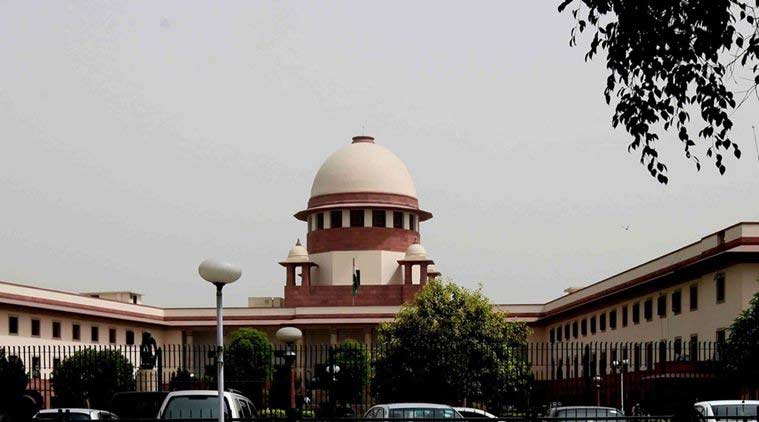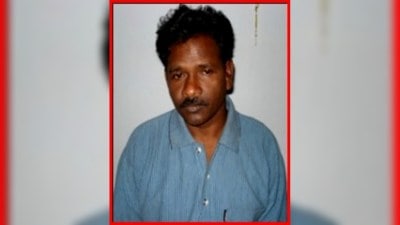The Supreme Court Tuesday upheld the order of the Allahabad High Court which ruled that reservation in faculty positions in universities should be calculated department-wise and not by taking the total seats in a university as basis.
A bench of Justices U U Lalit and Indira Banerjee rejected the Centre’s special leave petition which challenged the April 7, 2017 order of the Allahabad High Court.

In April 2018, the HRD Ministry filed an SLP following a political furore over the University Grants Commission’s March 5 order of the same year, announcing that the number of reserved faculty posts across universities and colleges would be calculated department-wise and not based on the aggregate vacant posts.
Story continues below this ad
The change, first reported by The Indian Express on October 23, 2017, was based on the Allahabad High Court verdict.
The Centre argued that calculating the vacancies department-wise would reduce the number of seats for the reserved category and defeat the object of implementing the reservation policy.
ExplainedLegislative route an option
The immediate effect of the Supreme Court verdict will be a drastic drop in the number of SC, ST and OBC teachers in universities. This can be overturned only through a Bill, which has been pending with the Union Cabinet for almost a month.
Although the government did not withdraw the UGC order, it asked all universities to put their recruitment on hold till the Supreme Court decided its SLP. The HRD Ministry, meanwhile, drafted a Bill to overturn the UGC order and sent it to the Cabinet for approval — there has been no development so far on that front.
The Allahabad High Court had said that if the university was taken as the unit for every level of teaching and the roster applied, it would result in some departments/subjects having all reserved candidates and some only unreserved candidates which would then be violative of Article 14 and 16 of the Constitution. Accordingly, it quashed Clause 6 (c) and 8 (a) (v) of the guidelines framed by the UGC.
Clause 6 (c) of the guidelines said posts should be grouped together wherever more than one university is functioning under a single Act or where more than one college functions under one university, to avoid artificial reduction of cadre strength in order to avoid reservation.
Story continues below this ad
Clause 8 (a) (v) called for implementation of the roster system as per directions of the Supreme Court in the 1995 case R K Sabharwal and Others vs State of Punjab and Others. A five-judge Constitution Bench had ruled that reservation prescribed shall be given effect in government services in accordance with a roster to be maintained in each department. The roster, it said, would be implemented in the form of a running account from year to year.
Questioning this, Solicitor General Tushar Mehta, appearing for the Centre, contended that the State was under a duty pursuant to Article 16(4) of the Constitution to make special provisions for reservation in appointments or posts in favour of members of the Scheduled Caste and Scheduled Tribe if they were not adequately represented in the services under the State.
The government contended that implementing the reservation policy by taking each department/subject as a unit, instead of taking the university as a unit, would lead to a situation where several departments of a university would have single post cadres (e.g. post of one professor in a given department) which would then be outside the purview of the reservation law.
Appearing for the respondent, advocate Gopal Sankaranarayanan pointed out that the Supreme Court, in a January 2017 decision in the Sanjiv Kumar vs State of UP and Others, upheld the validity of another April 2009 decision of the Allahabad High Court — in Dr Viswsajeet Singh and Others vs State of UP and Others — which also said that “the rules of reservation and roster shall be applied collegewise and subjectwise when there are plurality of post”.
Story continues below this ad
In February 2008, the UGC had advised the Banaras Hindu University (BHU) to follow the roster system cadre-wise instead of applying it department-wise. Consequently, the university issued advertisement in July 2016 for filling up the vacancies of various teaching and equivalent posts. This was challenged in the High Court which directed universities to make fresh roster, taking department/subject as a unit and not the university.
Experts said reservation based on department or subject as a unit meant that departments with single post cadres — usually the position of a professor — would be outside the purview of reservation. This would drastically reduce the number of SC, ST and OBC teachers in higher education.
Citing an example using the new formula, experts said departments with two or more faculty posts, but less than 15 in a cadre, will have only one reserved for an SC candidate at serial number 7 and for an ST candidate at serial number 14. So if a department has only six associate professor-level posts, none will be reserved for SC and ST candidates. Reservation will only be implemented through rotation which, experts said, could take years.

 A bench of Justices U U Lalit and Indira Banerjee rejected the Centre’s special leave petition which challenged the April 7, 2017 order of the Allahabad High Court. (File photo)
A bench of Justices U U Lalit and Indira Banerjee rejected the Centre’s special leave petition which challenged the April 7, 2017 order of the Allahabad High Court. (File photo)































